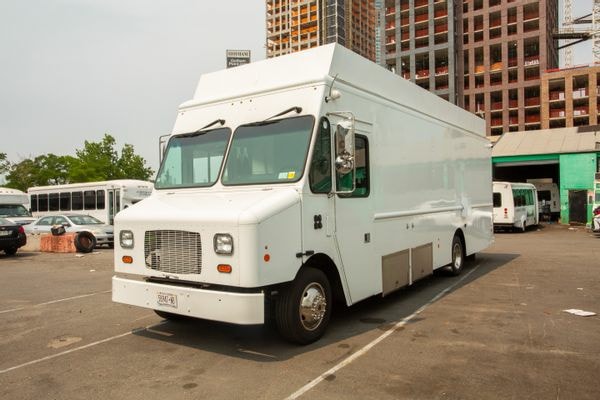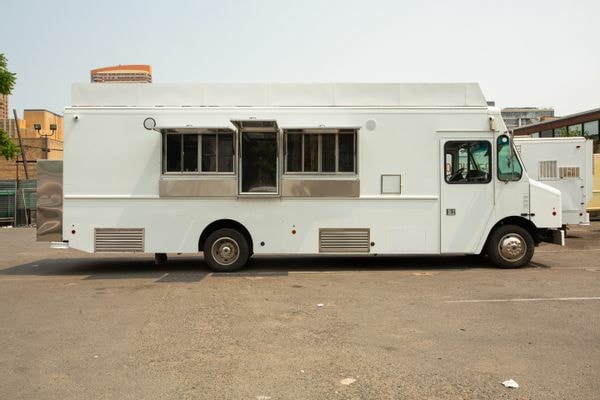How to Source Ingredients for Your BBQ Food Truck
How to Source Ingredients for Your BBQ Food Truck

How to Source Ingredients for Your BBQ Food Truck Image Source: Unsplash
Are you planning to start a BBQ food truck but unsure about where to source your ingredients? As a mobile food business, it’s crucial to have a solid food sourcing strategy to ensure you always have the necessary supplies to serve your customers. In this comprehensive guide, we will explore several sources that food trucks commonly use to purchase their ingredients. From wholesale food distributors to local suppliers and farmers markets, we’ll cover all the options available to help you build a successful BBQ food truck business.
1. Wholesale Food Distributors
One of the most common and cost-effective options for sourcing ingredients for your BBQ food truck is through wholesale food distributors. These distributors provide a wide range of food choices at competitive prices. You can find everything from fresh produce to meat and dairy products. Major wholesalers like Sysco, Performance Food Group, and US FoodService are excellent options to consider. They offer regular deliveries and can provide valuable advice on menu design and profitability.
When working with wholesale food distributors, it’s essential to determine your potential volume and buy accordingly. Proper planning in advance will ensure that you always have enough stock on hand without running out of necessities. Additionally, it’s crucial to prioritize quality when making purchases. While cost is important, compromising on the quality of ingredients can negatively impact the taste and overall success of your BBQ dishes.
2. Manufacturers
Another valuable source for ingredient procurement is directly from food manufacturers. Many major food manufacturers are easily reachable and willing to sell their products directly to businesses like food trucks. Start by visiting their websites and exploring the wide range of products they offer. From condiments and sauces to specialty ingredients, manufacturers can provide you with a diverse selection of options.
Keep in mind that there are thousands of big companies to consider, as well as numerous small companies and niche providers. Take the time to compare prices and quality as you shop around. Building relationships with manufacturers can also lead to valuable partnerships and exclusive access to unique ingredients for your BBQ food truck.
3. Online Retailers
In recent years, the internet has become an excellent resource for food sourcing. Online retailers like Amazon offer a wide range of non-food necessities such as serving dishes, disposable utensils, and cleaning supplies. Additionally, many food manufacturers have their own websites where you can directly purchase their products or find local retailers that carry them.
When shopping online, it’s crucial to research products and read customer reviews to ensure you’re getting high-quality ingredients. Online platforms can be a convenient option, especially when you’re looking for specific items that may not be readily available in local stores.
4. Grocery Stores
Although grocery stores may be slightly more expensive than wholesale options, they can be a convenient source for last-minute ingredient needs. When unexpected events arise or popular menu items run out quickly, grocery stores offer a quick and accessible solution. Local grocery stores can also be a valuable resource for fresh produce and other essential ingredients.
While purchasing from grocery stores, ensure that you are selecting high-quality products. Check for freshness and consider the preferences of your target customers. Grocery stores can be particularly useful when you’re looking for locally sourced or specialty items to enhance the unique flavors of your BBQ dishes.
5. Greenmarkets and Farmers Markets
Greenmarkets and farmers markets provide an excellent opportunity for food trucks to source fresh and locally grown ingredients. These markets are especially popular among health-conscious consumers looking for organic and sustainable options. By partnering with organic farms and local vendors, your BBQ food truck can cater to the growing demand for healthy and environmentally friendly food choices.
To establish relationships with local farmers and vendors, visit farmers markets in your area and get to know the growers. You can discuss your ingredient needs and explore the possibility of bulk purchases or regular deliveries. By supporting local farmers and participating in community events, you can create a unique and sustainable brand for your BBQ food truck.
6. Food Cooperatives
Food cooperatives, or co-ops, are groups of individuals who come together to purchase food and other supplies in bulk quantities. By joining forces with other non-competitive food truck owners, you can save money by placing larger orders and benefiting from volume discounts. Co-ops can be formed locally or by collaborating with other food truck entrepreneurs in your area.
To establish a food cooperative, reach out to other food truck owners and discuss the possibility of combining resources. By pooling your purchasing power, you can negotiate better prices with suppliers and ensure a steady supply of high-quality ingredients for all members of the co-op.
7. Shopping Clubs
Shopping clubs like Sam’s Club, Costco, and BJ’s Wholesale Club have gained popularity among restaurant owners and food truck businesses. These clubs offer products in bulk quantities at competitive prices, making them an attractive option for sourcing ingredients. However, keep in mind that membership is required to access these shopping clubs.
By becoming a member of a shopping club, you can stock up on essential items like rice, flour, and other non-perishable ingredients. These products have a longer shelf life and can help you save costs in the long run. Additionally, shopping clubs often provide a wide range of products, including specialty items and unique ingredients that can enhance the flavors of your BBQ dishes.
8. Commissaries
While not directly a food supplier, commissaries can play a crucial role in supporting the food sourcing process for your BBQ food truck. Commissaries provide storage, preparation, and kitchen space for food businesses, including food trucks. Many cities and states have regulations that prohibit food preparation in mobile kitchens, making commissaries a necessity for food truck owners.
By renting space in a commissary, you can store your ingredients, prepare your dishes, and ensure compliance with health and safety regulations. Commissaries also offer the opportunity to network and collaborate with other food entrepreneurs, allowing you to share insights and resources within the food truck community.
In conclusion, sourcing high-quality ingredients is essential for the success of your BBQ food truck. By exploring various sources such as wholesale food distributors, manufacturers, online retailers, grocery stores, greenmarkets, farmers markets, food cooperatives, shopping clubs, and commissaries, you can ensure a steady supply of fresh and flavorful ingredients for your BBQ dishes. Remember to prioritize quality and consider the preferences of your target customers when making purchasing decisions. With a well-planned food sourcing strategy, your BBQ food truck can thrive and delight customers with delicious and authentic barbecue cuisine.












